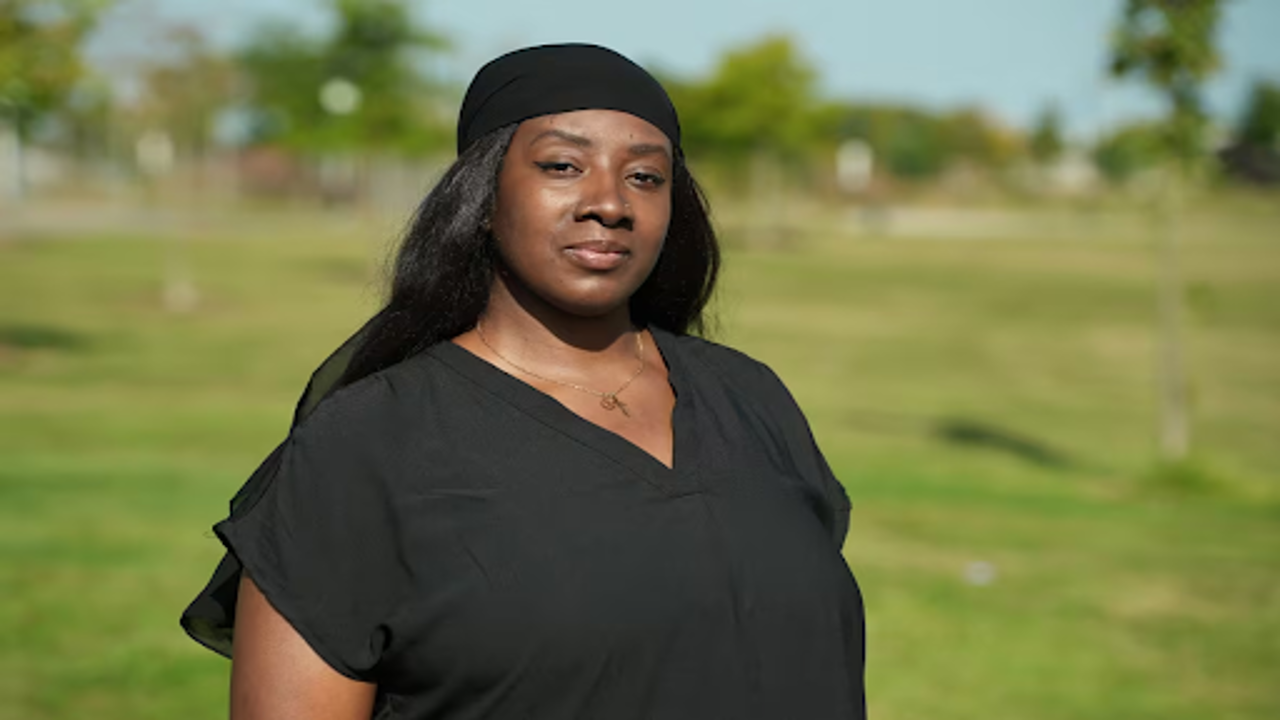
Jénnelle Johnson, 38, of Hamilton, Ont., was recently diagnosed with breast cancer. She learned of her diagnosis on her phone, through a message on a personal health data app. (Turgut Yeter/CBC)
Doctors concerned about hospitals delivering serious diagnoses to patients via apps, without context.
Patients receiving serious health diagnoses via apps is becoming a growing concern among doctors, especially as more Canadians gain online access to their medical results. For example, when Beth Marchant, 32, opened an email informing her that her ultrasound results were available, she was shocked to find a diagnosis of stage 3 breast cancer. "I saw the word carcinoma," she recalled from her home in Cambridge, Ontario. "In an email — that's not how you want to find out."
Similarly, Jénnelle Johnson, also in her 30s and residing in Hamilton, Ontario, faced a similar situation. Upon logging into her MyChart account, she was met with the chilling words "invasive ductal carcinoma." "My world stopped," Johnson said.
As more Canadians access their medical test results online, incidents like those experienced by Marchant and Johnson underscore a critical issue: patients learning about life-altering diagnoses through a screen, often without the presence of a healthcare professional to provide context and support.
Dr. Mojola Omole, a surgical oncologist in Toronto, expressed deep concern about patients receiving such news alone. "When a patient finds out that way, it's heartbreaking," she said. She emphasized the importance of having a healthcare professional available to explain the diagnosis and outline the next steps. "Without that, people are just lost, and that's really not fair," Omole added.
While hospitals and laboratories can control when specific test results are released, there is currently no standardized policy across Canada regarding the delivery of distressing medical news. Dr. Kimberly Wintemute, a family physician in Toronto, pointed out that patients typically have many questions that cannot be answered by brief results. "Hospitals have a responsibility to prevent these situations where patients receive difficult news in isolation, without any context," she stated.
Epic, the company behind MyChart, mentioned that hospitals can adjust the platform to delay the release of certain test results until a doctor can discuss them. However, not all institutions do this; some allow patients to choose which results they wish to access online.
The University Health Network (UHN) in Toronto, which launched its patient data portal in 2017, found that 94% of surveyed patients preferred immediate access to results, even if they were alarming. "Patients can also turn off notifications so they won’t be alerted when results come in," a UHN spokesperson noted.
Studies from other countries have suggested that, for most patients, having real-time access to health information can alleviate anxiety. John Kildea, who developed the Opal patient portal at the McGill University Health Centre, remarked, "While serious and sudden results need careful handling, most patients benefit from having access."
Both Marchant and Johnson expressed their dissatisfaction with learning about their diagnoses through an online message. "That level of diagnosis deserves more personal attention," Marchant commented, emphasizing the need for a conversation with a healthcare professional.
On the day Marchant received her results, she struggled to contact her family doctor for hours, leading her to seek answers online, which intensified her fears. "I found out I had a 50% chance of dying within five years. As a mother of three, with a six-month-old baby, that's horrifying," she reflected on her 2022 diagnosis.
Johnson, who also received her diagnosis alone, described the emotional toll it took. "To get that kind of news when you're by yourself is difficult to handle," she said. Now undergoing treatment, she waits for her doctor to provide updates before checking her results in the app, preferring not to confront the uncertainty alone.















